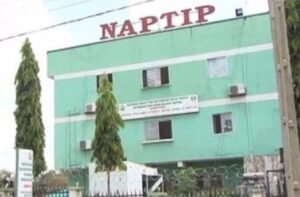Nigeria could pull nearly 14 million people out of poverty if it adopts a structured N20,000 monthly cash-transfer programme targeted strictly at poor households, the World Bank has warned in a new assessment of the country’s welfare system.
In its report, The State of Social Safety Nets in Nigeria, obtained on Friday, the Bretton Woods institution said the country’s existing social protection schemes are too weak, poorly funded and badly targeted to provide meaningful relief to the more than 100 million Nigerians living in extreme poverty. It also revealed that only 44 per cent of current benefits actually reach poor households.
According to the Bank, Nigeria’s current welfare architecture is “too small, too fragmented and too inefficient to move the needle on poverty”, especially amid soaring inflation and collapsing household purchasing power.
“At their present scale and design, social protection programmes are simply not adequate to cushion vulnerable families or reverse the rising poverty trend,” the report stated.
What Raising Transfers to N20,000 Could Achieve
Using simulations drawn from Nigeria Living Standards Survey data, the World Bank found that expanding monthly transfers to N20,000 — backed by stronger targeting and better funding — could “dramatically reduce” both poverty headcount and the depth of deprivation.
A perfectly targeted programme funded at N2.4 trillion annually (1.2 per cent of GDP — the lower-middle-income country average) could lift 13.9 million Nigerians out of poverty, more than double what current interventions achieve.
Even at Nigeria’s current expenditure level of around N500 billion, the Bank estimates that a clean and well-targeted programme could lift 3.3 million people out of poverty and reach almost 70 per cent of poor households.
With N1.8 trillion (0.9 per cent of GDP), around 10.6 million people would be moved above the poverty line.
Coverage Matters More Than High Payments
The World Bank stressed that wider coverage, not just bigger payments, is crucial. Its analysis shows that spreading N1 trillion across all poor households would lift around six million people out of poverty — slightly more than concentrating the same amount in N20,000 monthly payments to only a third of the poor.
It noted that households just below the poverty line require only minimal support to climb out of extreme deprivation, while the poorest households are often too far below the line for modest transfers to make a dent.
Under perfect targeting, directing N1 trillion to the poorest third would significantly reduce poverty severity but have almost zero impact on overall headcount poverty.
Nigeria’s Current System ‘Too Weak’
The report criticised Nigeria’s current welfare spending as “negligible”, weakened by low coverage and heavy leakage to non-poor beneficiaries.
It urged the Federal Government to treat safety-net funding as a long-term investment, not a short-term palliative.
“Scaling up cash transfers, particularly towards the N20,000 benchmark, represents one of the most efficient paths to reducing poverty in Nigeria,” the Bank said.
Government’s Current Efforts May Fall Short
Finance Minister Wale Edun recently said the government aims to deliver digital cash support to 15 million households, with 8.5 million having received one round of N25,000 payments. However, the World Bank warned that the initiative’s short duration and limited funding mean it is unlikely to achieve lasting poverty reduction.
Urgent Reforms Needed
The World Bank recommended three immediate steps for Nigeria:
1. Increase safety-net spending and treat it as an investment.
2. Expand coverage to reach far more of the 100 million Nigerians in extreme poverty.
3. Improve targeting and raise benefit levels to ensure measurable impact.
“Nigeria’s safety nets, at their current funding level and implementation pattern, are too small, too narrow, and too diluted to meaningfully reduce extreme poverty,” the report concluded.










